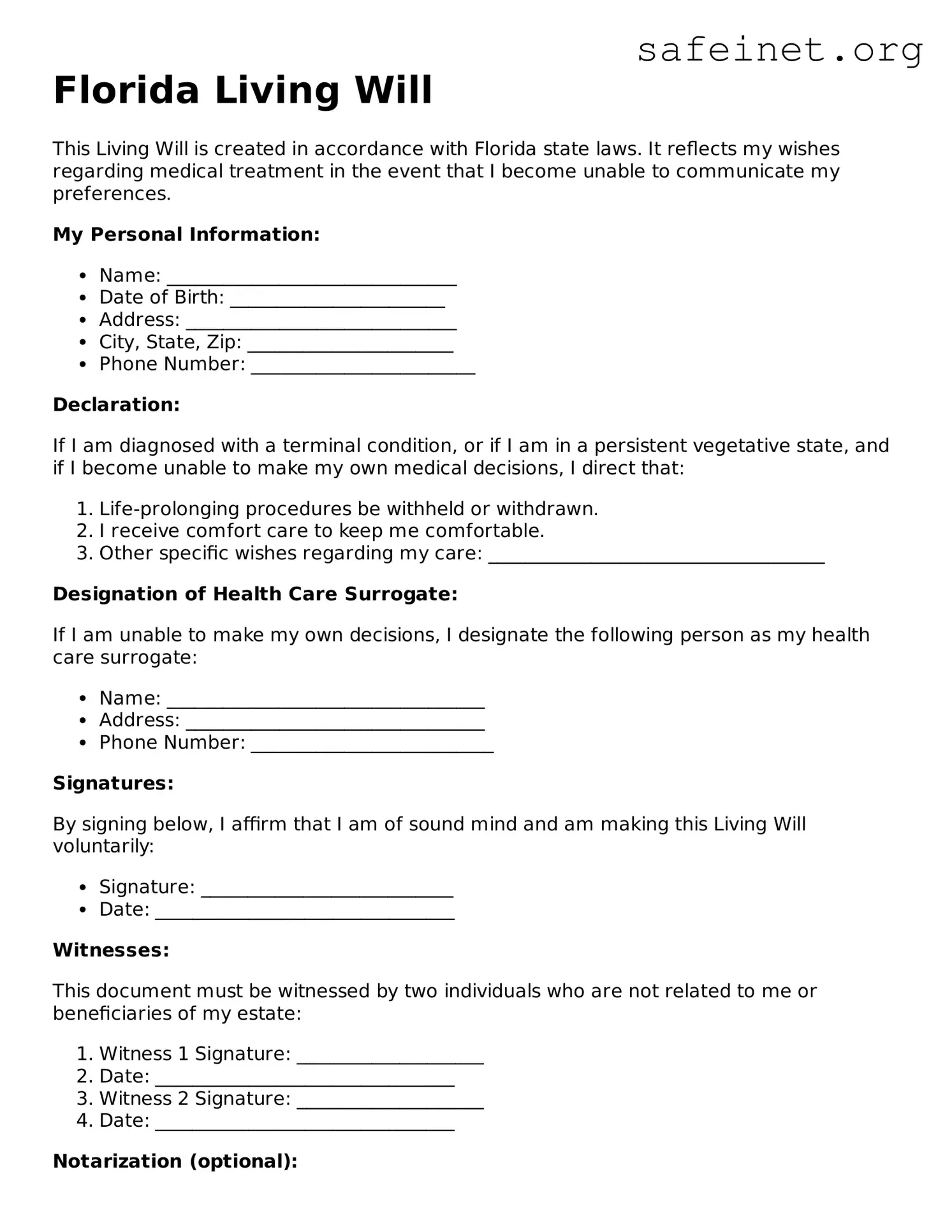What is a Living Will in Florida?
A Living Will is a legal document that allows individuals in Florida to express their wishes regarding medical treatment in the event they become unable to communicate those wishes themselves. This document primarily addresses end-of-life care decisions, such as the use of life-sustaining measures. It serves to guide healthcare providers and loved ones, ensuring that your preferences are respected during critical moments.
Who should consider creating a Living Will?
Any adult in Florida should consider creating a Living Will, especially those facing serious health conditions or who wish to document their healthcare preferences for the future. Even healthy individuals may benefit from having this document to alleviate concerns about their wishes being ignored in a medical crisis. Discussing your wishes with family and healthcare providers can provide clarity and peace of mind.
What are the requirements for a valid Living Will in Florida?
To create a valid Living Will in Florida, several requirements must be met. First, the document must be signed by the individual making the Will, known as the declarant. Second, it requires the signatures of two witnesses who are not related to the declarant and who will not inherit from the declarant. Additionally, an optional acknowledgment by a notary public can enhance the document's validity. It is crucial that all signatures are dated and that the document is clear and comprehensive.
Can a Living Will be changed or revoked?
Yes, you can change or revoke your Living Will at any time, as long as you are of sound mind. To revoke it, you might destroy the document physically or create a new Living Will that explicitly states the previous one is no longer valid. It’s also advisable to inform your healthcare providers, family, and anyone else who might need to be aware of your updated wishes when modifications are made.
Where should I keep my Living Will?
Your Living Will should be kept in a safe but accessible place. It’s essential that family members and your healthcare providers know where to find it. Many choose to keep a copy in their home and provide additional copies to their primary physician and family members. Some also consider registering the document with a state registry to further ensure it is available when needed.
What happens if someone does not have a Living Will in Florida?
If an individual does not have a Living Will, healthcare decisions may be made based on the judgment of medical professionals and family members. This can lead to uncertainty and disagreements among family members in emotionally charged situations. Without clear instructions, medical staff will typically follow standard procedures, which may not align with the individual’s personal preferences. Therefore, having a Living Will is often viewed as a respectful way to communicate one's wishes and avoid potential conflicts during difficult times.
